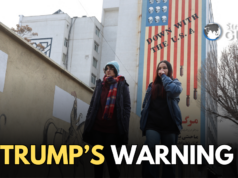Amid a flurry of diplomatic discussions and policy debates at the 10th Raisina Dialogue in New Delhi, Dr. Victoria Panova, Head of the BRICS Expert Council in Russia, Vice-Rector of HSE University, and Russia’s W20 Sherpa, took a moment to discuss the future of BRICS and its expanding role in global governance. With the world at a crossroads between old power structures and emerging economies, her insights shed light on the organization’s evolution, challenges, and aspirations.
A Club of Inclusivity and Reform
“BRICS is founded on the principles of inclusivity,” Dr. Panova began, emphasizing that it was never meant to be an exclusive club catering only to its members. Instead, she described it as a collective that seeks reform through evolution rather than revolution. The recent expansion of BRICS, she noted, is a testament to its commitment to ensuring fair representation for sovereign states, giving them a voice in shaping the global order.
Tracing the history of BRICS, Dr. Panova reminded us that South Africa’s inclusion in 2010 was the first step towards a broader vision. “From its inception, BRICS has been open to new ideas and perspectives, which is why this expansion was inevitable,” she said. However, she cautioned against turning BRICS into another United Nations General Assembly, stressing the need to balance inclusivity with efficiency.
BRICS vs. Western Scepticism
The expansion of BRICS has not gone unnoticed in Western circles. Dr. Panova reflected on criticisms from some Western analysts who argue that as BRICS grows, reaching a consensus will become increasingly difficult. She dismissed this concern, stating that diversity within BRICS has always existed, and negotiations remain central to its strength.
“Within the G7, there is an expectation that the world should think like they do. But in BRICS, we embrace different perspectives,” she pointed out. This, she argued, is precisely why BRICS has remained relevant, fostering critical thinking and diplomacy rather than enforcing uniformity.
Another concern raised at the event was former U.S. President Donald Trump’s recent statement threatening a 100% tariff if BRICS moves forward with a new currency. Dr. Panova was quick to clarify that BRICS has never seriously considered a common currency. “We are talking about a payment system, an investment platform that facilitates trade among our countries,” she explained.
The push for de-dollarization, she noted, was not initiated by BRICS but by global circumstances. “It was not our choice to see the dollar being used as a weapon in geopolitical conflicts,” she stated, adding that BRICS nations simply want to maintain their sovereignty and economic independence.
BRICS as a Platform for Dialogue
Despite political tensions among some member states, BRICS continues to serve as a diplomatic platform for fostering dialogue. Dr. Panova pointed to the recent discussions between Indian Prime Minister Narendra Modi and Chinese President Xi Jinping at the Kazan summit as an example of how BRICS can facilitate breakthroughs.
“BRICS provides a space for dialogue where even difficult bilateral relationships can find common ground,” she said. She also addressed Western portrayals of BRICS as a challenge to the existing world order, calling it a misinterpretation. “None of the BRICS nations are seeking to position themselves as a threat to the West. If anything, BRICS is about cooperation, not confrontation,” she asserted.
The Road Ahead
Looking toward the future, Dr. Panova remained optimistic but acknowledged that global governance would face significant challenges. She urged Western powers to adopt a more constructive approach. “The sooner the G7 and other global powers recognize that they are not rulers but equal partners, the smoother the transition to a fairer world order will be,” she remarked.
With BRICS expanding and strengthening its economic and strategic cooperation, the coming years will be crucial in determining its impact on global governance. As Dr. Panova aptly put it, “BRICS is here to ensure that the world is not just for the few, but for the many.”
In a career spanning three decades and counting, Ramananda (Ram to his friends) has been the foreign editor of The Telegraph, Outlook Magazine and the New Indian Express. He helped set up rediff.com’s editorial operations in San Jose and New York, helmed sify.com, and was the founder editor of India.com.
His work has featured in national and international publications like the Al Jazeera Centre for Studies, Global Times and Ashahi Shimbun. But his one constant over all these years, he says, has been the attempt to understand rising India’s place in the world.
He can rustle up a mean salad, his oil-less pepper chicken is to die for, and all it takes is some beer and rhythm and blues to rock his soul.
Talk to him about foreign and strategic affairs, media, South Asia, China, and of course India.




